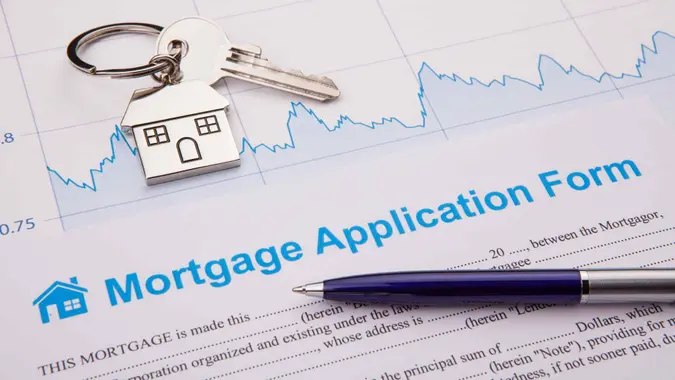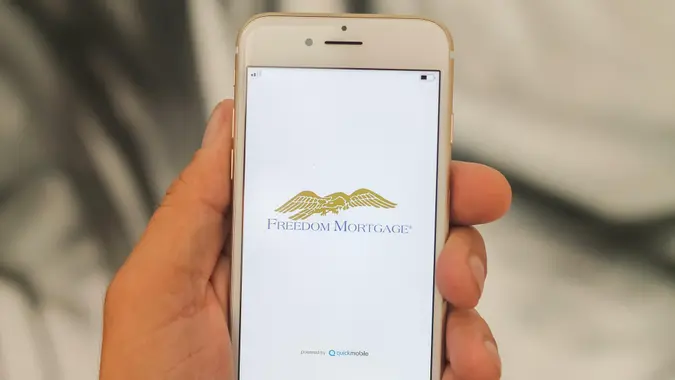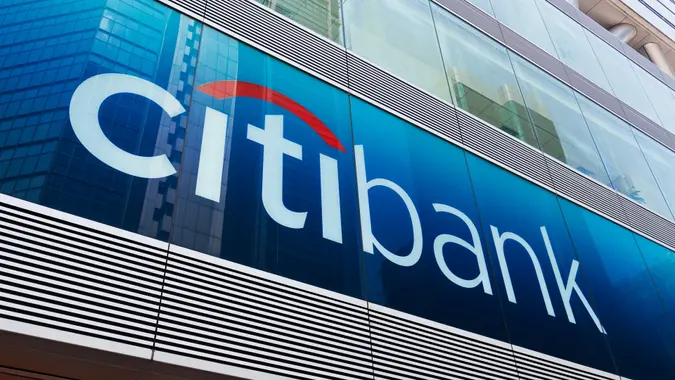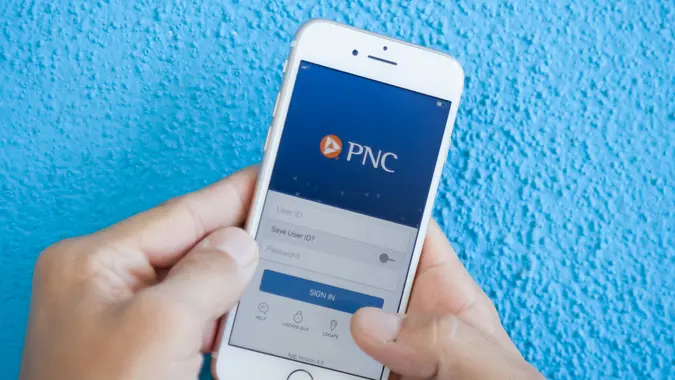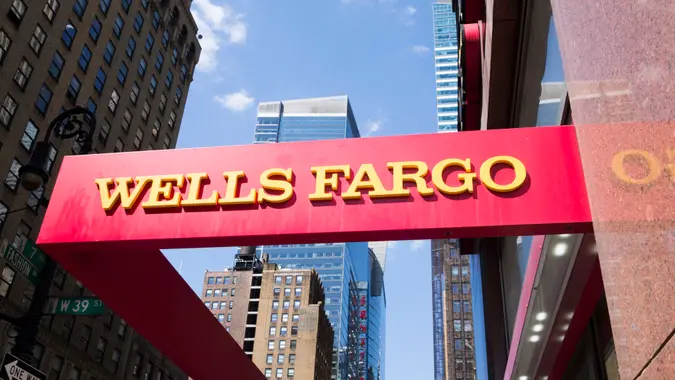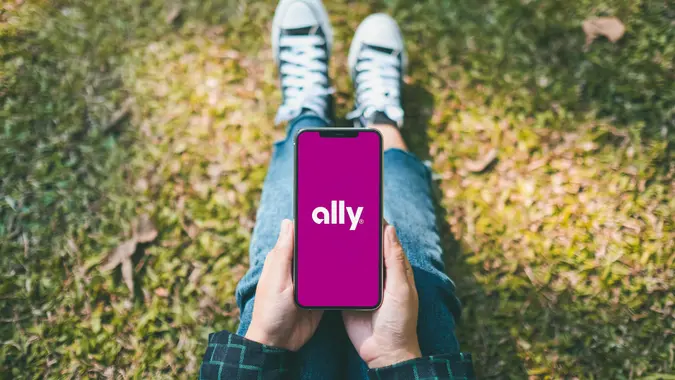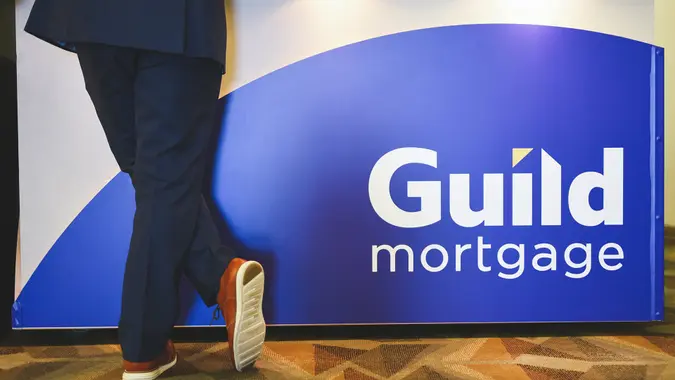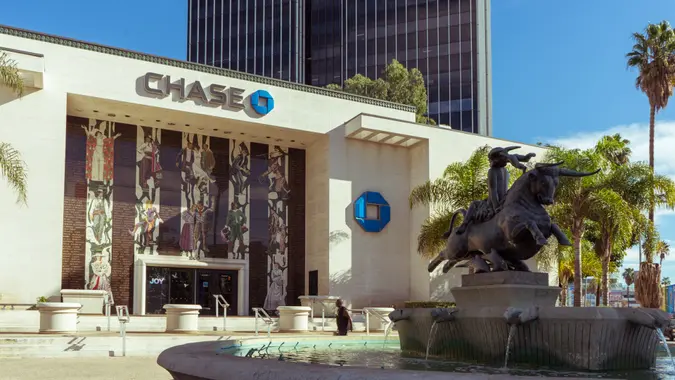U.S. Bank Home Mortgage Review: Is It the Right Mortgage Option for You?

Commitment to Our Readers
GOBankingRates' editorial team is committed to bringing you unbiased reviews and information. We use data-driven methodologies to evaluate financial products and services - our reviews and ratings are not influenced by advertisers. You can read more about our editorial guidelines and our products and services review methodology.

20 Years
Helping You Live Richer

Reviewed
by Experts

Trusted by
Millions of Readers
U.S. Bank, member FDIC, has a simple lending process that begins with a quick online prequalification process that gives you a better idea of what you could borrow. Even if you don’t have the highest credit score or down payment, you might find a mortgage loan suited to your needs.
If you’re opening a U.S. Bank mortgage account for the first time, you can expect the bank to cover some of the bill with its U.S. Bank Customer Credit, provided the customer credit is approved before the loan approval. Keep in mind that the loan amount for this is subject to credit approval and interest rates and program terms may vary.
How the U.S. Bank Mortgage Process Works
If you want to take out a home mortgage loan with U.S., you can start by completing the lender’s free online prequalification process. It takes about five minutes and won’t affect your credit score. You don’t even have to have an account to do it.
If you already know roughly what you qualify for, you can skip straight to the mortgage application process. This entails:
- Creating an account and then providing your personal and financial information through U.S. Bank’s online application system.
- Submitting your documents online. The entire process takes about 30 minutes, though you may be asked for additional information after submitting an application.
If you’d prefer to apply for a loan in person, U.S. Bank has over 2,000 physical branches across 26 states. You can also contact the bank via phone if you need assistance 800-USBANKS or 800-872-2657.
Pros and Cons of U.S. Bank
Pros:
- No shortage of mortgage loans, mortgage refinancing and credit products
- Mortgage loans available to help first-time buyers or those with a lower credit score or down payment qualify for homeownership
- Simple online application process
- User-friendly and highly rated mobile app
- Convenient online banking with all the digital features the website offers
- Offers digital content and online banking tools specifically designed to streamline the mortgage loan process
- U.S. Bank is considered a top selection in the home mortgage loans sector
Cons:
- Eligibility requirements can be strict for certain types of mortgage loans
- Mortgage rates and APR may be higher than the market average (depending on loan type and personal qualifications)
- Customer service can be lacking
U.S. Bank Loan Options
One of U.S. Bank’s features that help it stand out from other leading competitors is the amount of loan options available, and the flexibility to find the right one for you. Here are some of the offerings you can consider:
Conventional Loans
U.S. Bank offers conventional fixed-rate loans and adjustable-rate mortgages (ARMs).
Fixed-rate loans generally come with the lowest interest rate possible, while ARMs may have a lower starting rate that can fluctuate over time. If you don’t put at least 20% down, you may be required to get private mortgage insurance (PMI) .
Federal Housing Authority Loan
Customers with low credit or limited funds should consider U.S. Bank’s Federal Housing Authority loan option. The FHA loan qualifications are usually more expansive and welcoming than other loans, thanks to looser requirements on payments and credit history.
The catch is interest rates could be higher, and those who opt for the loan will almost certainly have to purchase PMI.
Veterans Affairs Loan Program
Active-duty or veteran service members should definitely consider a Veterans Affairs-backed mortgage. Its key benefits include low or no down payment, no PMI required and fewer hardline qualification requirements.
Jumbo Loan
Jumbo-sized properties call for jumbo-sized loans. This home loan is used to purchase luxury properties or homes in expensive areas. Interest rates on jumbo loans exceeding $1 million might even be tax deductible.
However, given the size of the loan, applicants should be sure their credit score is at least 740 — a decently high credit score — to meet credit approval and program guidelines.
Investment Property Loan
Customers aspiring to be landlords should check out U.S. Bank’s investment property loan mortgage option, which lets you finance a residential property with one to four units. These loans also cover people who want to buy a second home or a vacation rental property
Construction Loans
You can use these U.S. Bank loans to finance construction projects or to purchase the lot upon which you will construct your new property.
U.S. Bank recommends some personal research on the part of the applicant, including checking the builder’s credentials and ensuring the logistics of the project fall within state and insurance guidelines.
Refinance options
Refinancing an existing mortgage could get you a lower monthly payment or lower interest rate. It also lets you change your repayment term. U.S. Bank’s refinancing options include a rate-and-term refinance (lowers your monthly mortgage payment) and a cash-out refinance (to access your home’s equity).
Home equity loans
Do you have equity in your home and a 660+ credit score? If so, you may qualify for a home equity loan. U.S. Bank has an online home equity calculator you can use to determine how much you could borrow.
You can also apply online in just a few minutes. If approved, you’ll receive loan funds within three business days of closing (no closing costs required).
First-time homebuyer programs
U.S. Bank offers down payment assistance to help first-time buyers afford a home. Their main program is called the American Dream Program and is geared toward low-to-moderate-income borrowers.
U.S. Bank Mortgage Rates and Fees
U.S. Bank mortgage rates (and APRs) vary by loan type, personal credit score, debt-to-income ratio and other criteria. The good news is that U.S. Bank is upfront with its typical rates. The lender even provides a general idea of the other fees — namely, closing costs — you can expect when taking out a home loan. Typical closing costs are 2% to 5% of the home loan amount.
As for the rates, here’s what you can expect for some common mortgage loans as of April 23, 2025:
| Loan Type | Rate | APR |
|---|---|---|
| Conventional Loan (30-year fixed-rate) | 6.625% | 6.792% |
| Conventional Loan (15-year fixed-rate) | 5.875% | 6.168% |
| FHA Loan (30-year) | 6.625% | 7.492% |
| VA Loan (30-year) | 6.500% | 6.864% |
| Jumbo Loan (30-year) | 6.875% | 7.060% |
| Mortgage Refinance (30-year, fixed) | 6.875% | 7.019% |
If you find a mortgage interest rate you like, you may be able to lock in that rate for 30 to 60 days. This guarantees that you’ll still get the same rate even if rates start trending upward.
U.S. Bank vs. Other Mortgage Lenders
U.S. Bank has a lot to offer both new and repeat homebuyers, but it’s not the only mortgage lender out there. Here’s how U.S. Bank stacks up against a couple of its top competitors:
| Feature | U.S. Bank | Wells Fargo | SoFi |
|---|---|---|---|
| Apply Online | Yes | Yes | Yes |
| Approval Timeline | Several weeks | 30 to 90 days | Around 43 days |
| In-Person Help | Yes | Yes | No — fully online |
| Mobile App | Great | Great | Good |
| Loan Types | Many options | Similar options | Similar options |
| Clear Fees | Yes | Yes | Mostly |
| Best For | Hybrid process (online or in-person), rate transparency | Down payment or closing cost assistance, first-time buyers | Online process, 90-day rate lock |
Who Should Consider U.S. Bank?
The several U.S. Bank mortgage loan options should cater to a wide variety of needs based on financial limits. The opportunity to take a percentage off the closing price is nothing to scoff at, as that can help offset the mortgage application fees. On the other hand, U.S. Bank’s mortgage rates and APR are higher than the market average.
However, U.S. Bank’s online platform for mortgages comes with a good amount of useful tools that should make the entire process easier for the customer. The bank’s reputation as a mortgage lender leader should not be underestimated, whatever its rates are; it was the only bank reporting mortgage service growth.
U.S. Bank May Be Best For:
- Those seeking an online or in-person lending process
- Borrowers who aren’t sure which mortgage type they need
- First-time buyers
- Existing U.S. Bank customers
U.S. Bank Is Not Ideal For:
- Those seeking the lowest mortgage rates
- Buyers who prefer a traditional in-person experience
- Its customer service (depends on location)
Sean Dennison contributed to the reporting for this article.
Editorial Note: This content is not provided by any entity covered in this article. Any opinions, analyses, reviews, ratings or recommendations expressed in this article are those of the author alone and have not been reviewed, approved or otherwise endorsed by any entity named in this article.
- Is U.S. Bank a legit mortgage company?
- Yes, U.S. Bank is an FDIC-approved lender offering nationwide mortgage financing and refinancing.
- How fast can I get preapproved?
- You can complete the prequalification process online in only a few minutes to get a near-instant estimate of what you might qualify for. The preapproval process depends on whether or not the lender needs more information to make a decision.
- What credit score do I need for U.S. Bank?
- This depends on the mortgage loan type. You'll typically need a credit score of 620 or better to qualify for a loan. However, some loan types--like FHA loans--have lower credit score requirements.
- Can I refinance through U.S. Bank?
- U.S. Bank offers two refinancing options: a rate-and-term refinance and a cash-out refinance.
- Does U.S. Bank charge high fees?
- U.S. Bank's APRs and interest rates may be a little higher than the industry average (depending on where you live, your credit score and other factors). But its overall closing costs are 2% to 5% of the loan amount, which is about the industry average.
 Written by
Written by  Edited by
Edited by 




